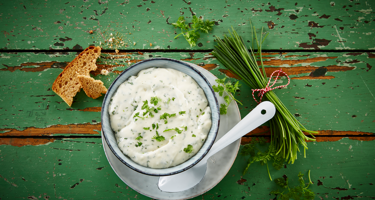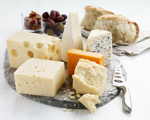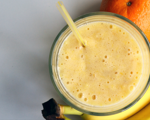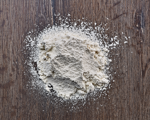
What is cottage cheese?
Cottage cheese is a specific kind of fresh cheese made using curds derived from cow's milk. It has a mild flavour and is known for its lumpy, curd-like appearance.The production process retains most of the protein in the milk, resulting in a final product with a high protein content.

Is cottage cheese high in protein?
The protein content of cottage cheese can vary depending on the specific type and brand. However, our Arla Protein® cottage cheese contains 15 grams of protein per 100 grams, which equals an energy contribution of 75 % of the total energy value, making it a high-protein food, as the limit for this label is 20 %.
We can compare the level of protein in cottage cheese with that of, for example cream cheese, as this is also considered to be relatively fresh cheese that has not been aged for long.
Cream cheese is smooth and spreadable with a rich, creamy flavour. It is made by adding lactic acid bacteria to cream or a combination of cream and milk, and the mixture is then heated until the desired consistency is reached. The protein content varies depending on the specific product, but a 45-55 % cream cheese contains about 5.6 grams of protein per 100 grams, which is 8.9 % of the total energy value.
Cottage cheese protein per 100g
Protein in cheese of this type can vary somewhat, however, our Arla Protein® cottage cheese contains 15 grams of protein per 100 grams, which equals an energy contribution of 75 % of the total energy value
Is cottage cheese protein?
While it is true that cottage cheese is high in protein, it is important to remember that it is not a protein type itself. Cottage cheese is a dairy product that contains a range of nutrients, including proteins, fats, carbohydrates, and various vitamins and minerals.
It is primarily made up of about 80 % water, and the remaining 20 % is a mix of protein, fats, and carbs. Full-fat types tend to have a slightly higher fat content and lower protein content compared to low-fat versions. However, the protein in cottage cheese remains a significant component regardless of the amount of fat present.
Check out our articles about protein in cheese and animal-based protein if you want to know more about these topics.
Related Articles
Looking to learn about protein content in different foods? Explore our comprehensive guides:









































